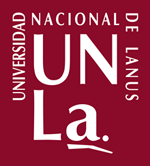Gender inequality and public policies in protected areas.
Abstract
This paper discusses gender inequality observed within
the development process of the Ejido Luis Encinas
Johnson, located at the Municipality of San Luis Rio
Colorado, Sonora, in the Southeast region of the Agricultural
Valley of Mexicali. The Ejido was declared a
protected area on which the government established a set
of conflicting public policies, one policy for conservation
and a second policy for human development. Our aim
is to reflect upon the social, economic and environmental
impacts of this zone after it was designated a protected
area. This act changed the way conservation public policies
are envisioned and the role that the population must
adopt in order to comply with the new regulations. This
was especially challenging for women who are head of
their families, for they feel excluded from public programs
because of their gender.






